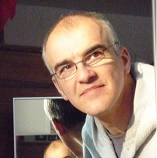Stamatios Gerogiorgakis is “Privatdozent” at the University of Erfurt in Germany. We invited him to answer the question “What is Philosophy of Religion?” as part of our “Philosophers of Religion on Philosophy of Religion” series.
Let me draw a parallel with aviation: future philosophers of religion take off, like all philosophers, by studying a wide variety of subjects from metaphysics to political philosophy, from epistemology to aesthetics, from ethics to philosophy of science.
It is not in terms of taking off where philosophers of religion differ from their other colleagues in the discipline. It is rather in terms of landing. After studying metaphysics and ethics and epistemology etc. those who intend to land a career in philosophy of religion have to realize that the landing spot is too small. The horror disappears once they look to their right and to their left: the landing corridor is only a few yards “long”, but it is also several miles “broad”. In other words, philosophy of religion is no compact area in philosophy but rather a narrow path which goes through all areas of philosophy: from metaphysics to ethics and political philosophy and from epistemology and philosophy of science to aesthetics.


